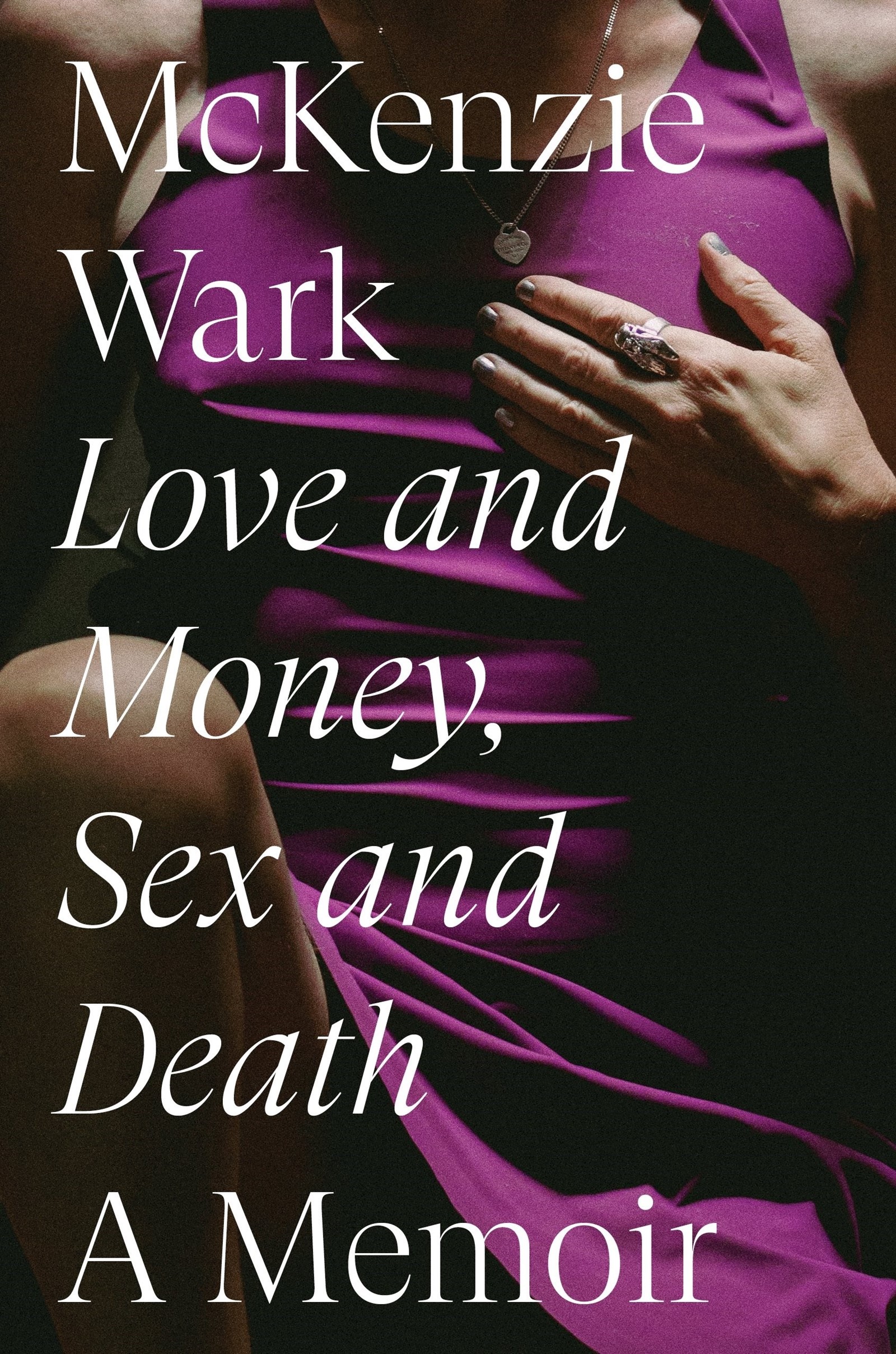How can the memoir genre reflect the experience of being both queer and trans? Love and Money, Sex and Death is the scholar and writer McKenzie Wark’s latest attempt to answer this question. Through 11 letters, this book continues an auto-fictional experiment in queer and trans life writing that Wark began with Reverse Cowgirl, published in 2020. That was “a book about getting railed”, according to Wark, or more specifically, discovering and undiscovering herself through sex and drugs. Next came Raving, published in 2023, which journeys through New York’s underground rave scene to explore what techno can mean to those with diminishing futures.
In Love and Money, Sex and Death, Wark begins and ends the book by writing to her younger self – she’s now 60 but addresses herself at 20 and 40 – as well as to family members back in Australia, past lovers, and her ex-wife, to whom she was married for two decades. The last section features letters to trans women, fictional composites of real women she knows, and the ancient goddess Cybele, reimagined as a trans deity. It is a kind of manifesto for what Wark calls “femmunism” (feminism plus communism).
At The New School in New York, where Wark works as professor of media and cultural studies, we sat down to discuss trans literature, ageing, raving, and drug taking.

Amelia Abraham: Why did you choose to write a memoir in letters – is the epistolary form one you’ve used before?
McKenzie Wark: I’ve been trying to write in epistolary form for 20 years and failed at it. There’s a group of other trans writers that have done it, like Cecilia Gentili, Hazel Jane Plante and Akwaeke Emezi. I thought that was interesting – why are we gravitating to this form? The conclusion I came to is that this conceit of addressing a real or fictional person shapes expectations for the reader.
Love and Money, Sex and Death is in dialogue with things happening in trans lit more generally. Questions like: what’s our tradition? Which forms will allow us to do what I am suspicious that some conventional forms won’t let us do? And what are the limitations of form? Which of our stories have we not told yet and where? At the same time it’s a book for everybody. [Laughs.]. Love, money, sex and death are four things pretty much everyone has to go through.
AA: What kind of forms might not work?
MW: The novel as a form is generally about marriage and property. There’s ambiguity now about whether something is called a novel or fiction, but if it’s the former it tends to be marriage and property and variations on that – there are very fine divorce novels these days, but it’s essentially all the same thing. Or else a novel is a bildungsroman, the self as its own property.
So I think there are forms of literature that are essentially bourgeois and not for us, and although I had that experience, because I was married and living in the suburbs for 20 years, I think now it doesn’t hold space for other kinds of life and writing, while different kinds of autofiction can. Guillaume Dustan’s books, for example, which I just love. He wrote a book about going out in the Marais and fucking other men. Those books don’t have novelistic structures because it’s a gay life and a life that doesn’t have a conventional structure – he’s not going to get married, get divorced, and fight about who gets the house.
AA: What you call the “temporal dysphoria” of being queer and trans.
MW: Right. I think these books – Reverse Cowgirl, Raving, and Love and Money, Sex and Death are about life as I’ve lived it, and then versions of the past, as there’s always a different version of the past depending on where you are in the present. For instance, going on hormones changed my own memory of the past in interesting ways. It opened wounds up again. I lost my mother when I was six, and it was like ‘I’ve had a lifetime to deal with that,’ then ‘oh wait, no I haven’t.’
“It’s a book for everybody. [Laughs]. Love, money, sex and death are four things pretty much everyone has to go through” – McKenzie Wark
AA: One of my favourite letters is a conversation with an imagined trans woman, Veronica, about “trap metaphysics” – can you explain that concept for the reader?
MW: This will sound pretentious but it’s a mock Platonic dialogue – and also my version of Oscar Wilde’s The Decay of Lying. Trap metaphysics is about aesthetics and the claims levelled at trans people around artifice. It makes the point that everyone and everything is [artifice] – maybe we, trans people, are just better at it. We’re the queens of artifice. If you read second-wave feminism, one of the strands is the idea of subjecthood centering around masculinity. To be a woman is already to be away from that, not to be the “proper subject”. To be a trans woman is doubly to not be the proper subject, the improper version of a “proper thing”: white masculinity. It’s asking, what would it mean to embrace that additional fallenness and the “improperness” of being, in a way which is generative and makes possible new kinds of life?
I think there’s also a possibility for mutual understanding – trans women have so many issues around our bodies and cis women do too. Sometimes in equal or opposite directions, ‘We wish our hips were bigger, you wish they weren’t.’ The malaise that the world puts on femininity is that it’s always imperfect. The letter to Veronica is partly about that, this ideal of all womanhood as artifice and how, ironically, it’s often trans women who do it better than anyone else. Women are meant to be skinny and tall with huge tits … It’s the dolls!
AA: You mention the writer Hannah Baer in the acknowledgments – I’ve been reading her incredible book Trans Girl Suicide Museum, where she talks about understanding she is trans through taking ketamine because it took her outside of her body. You briefly talk about your experience taking mushrooms and how that helped you come to realisations around transitioning …
MW: There’s a whole trans women and ketamine culture and I’m grateful to Hannah for writing about that. A chapter in Raving called ’Ketamine Femmunism’ has also really resonated with people. There’s also a whole subset of people who came into transness through drugs. In Reverse Cowgirl, there’s a pivotal scene where I take mushrooms and go up to a hillside and there’s a storm and when I come down it’s decided. I think being out as a recreational drug user is probably more difficult than being out as trans in some respects, because I have a tenured job. I don’t really drink much though. At this age, you either have to drink all the time or not at all because the hangovers are so bad.
AA: You recently wrote a book on raving, is that still something you do a lot?
MW: For once the field work stuck. I’ve written books about subcultural worlds before and moved away from them. But I needed this, raving, and the book is for other people for whom it’s a necessity. I was trying in the book to find a different sort of language for that need. In interviews, I kept being asked questions in conventional language. ‘Rave is utopia’. No. Transcendence. No. A religious experience. No. For me, it’s not going to improve life but it makes living somehow durable. I think it also plays with time. Rave is a pocket in time where there’s more time, or time goes sideways. Techno is not future-orientated as music the way it was in the past. It’s about intensifying the present. A present without a narrative arc. I think a good DJ set winds sideways temporally in terms of energy. So I think that’s why the book has resonated with people for whom there aren’t a lot of futures possible.
“There are forms of literature that are essentially bourgeois and not for us, and although I had that experience, because I was married and living in the suburbs for 20 years, I think now it doesn’t hold space for other kinds of life and writing, while different kinds of autofiction can” – McKenzie Wark
AA: Another kind of temporal dysphoria. For trans people, transition can mean you “grow up” later, but also – as you point out in the book – many trans people don’t make it to your age. In what ways did the book help you reflect on ageing?
MW: Totally. I went through puberty in my 50s as I transitioned, spending hours crying in a coffee shop and fucking random trans girls. [Laughs]. The book is a kind of ‘here is what I know about life, about getting to here, 60’. There aren’t that many older trans women. A lot of us are late transition because that’s how we survived, but a lot of late transitions were never queer in the past and I felt that was a perspective I have. Maybe my role in these communities is to be the great aunt who is there to tell your troubles to and to reassure people. Because in trans life to be 40 is old, let alone 60. But I want the girls to have long lives. One consolation for being now ‘officially elderly’ is I get bothered so much less. People think I’m past my last fuckable year. I’m like, ‘You can think what you want as long as you leave me alone.’
AA: And yet you’re not only getting railed but writing books about it. Talking of which, what’s next?
MW: I’ve lost count of how many books I have written. This is number 12, I think. So this is my year of no new projects while I think about the books I want to work on next. I have all these ideas but I have to triage them down because I don’t know if there’s enough time. Side projects are allowed, like my column for Document, and I’ll be in the UK in October talking about Love and Money, Sex and Death.
Love and Money, Sex and Death by McKenzie Wark is published by Verso and is out now.
